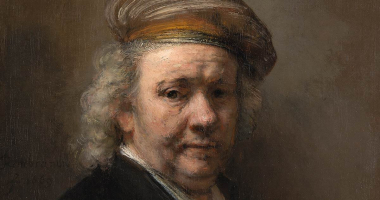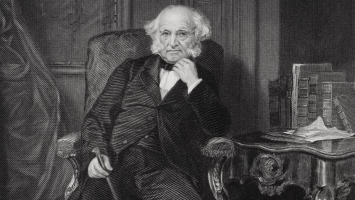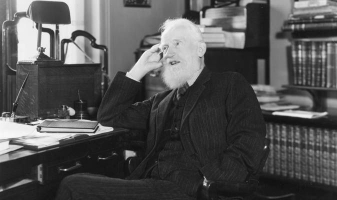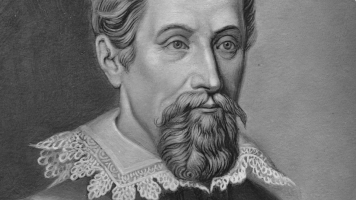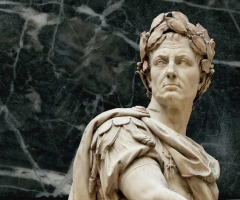Top 8 Interesting Facts About Ludwig van Beethoven
One of the greatest composers who have ever lived, Ludwig van Beethoven, was born into a musical family in Bonn, Germany, in December of 1770. Beethoven was a ... read more...classical composer of nine symphonies, piano concertos, piano sonatas, and string quartets. He was stubborn and self-absorbed, dramatic but devoted to his friends. Beethoven, who had excelled as a performer for much of his youth and into his early thirties, gradually lost his hearing yet continued to produce some of the most significant compositions in musical history. Here are some interesting facts about Ludwig van Beethoven.
-
Beethoven was raised by musicians. Beethoven's father, Johann van Beethoven, wanted to turn his son into a child prodigy like Wolfgang Amadeus Mozart but failed since he knew his son adored playing the piano. No of the hour, day or night, Beethoven was compelled to practice in order to attain the prodigy level. Beethoven's father served as his first music instructor. Later, he received instruction from various local musicians, including court organist Gilles van den Eeden (d. 1782), family friend and keyboard tutor Tobias Friedrich Pfeiffer, relative and violin and viola teacher Franz Rovantini, and royal concertmaster Franz Anton Ries for the violin.
In the sixth year, his tuition was due. He frequently shed tears as a result of the strict and demanding schedule. There were sporadic late-night sessions with the involvement of the insomniac Pfeiffer, where the young Beethoven was pulled from his bed to the keyboard. At a young age, his musical skill was evident. Johann attempted to portray his son as a child prodigy by claiming that Beethoven was six years old on the posters for his debut performance in public in March 1778, despite the fact that Beethoven was actually seven. Johann was aware of Leopold Mozart's successes in this area (with his son Wolfgang and daughter Nannerl).
Mozart and Beethoven did interact in 1787. By that period, the young Beethoven had been named continuo player for the Bonn opera and had published a piece (Nine Variations on a March by Dressler in 1783) as well. Mozart reportedly told Beethoven after their meeting, "This young man will make a great reputation for himself in the world." Beethoven was a viola player in the Bonn orchestra three years later when composer Joseph Haydn "found" him and took him under his wing. Beethoven permanently departed Bonn in 1792. His musical mementos included the Bonn orchestra's trademark "Mannheim rockets," abrupt pianos, and startling outbursts. In Beethoven's later works, these components are heavily featured.
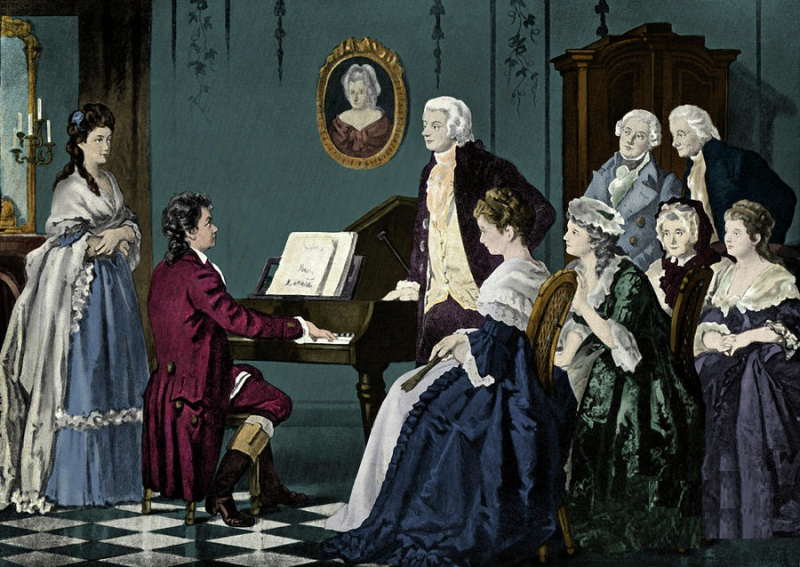
Source: pixels.com 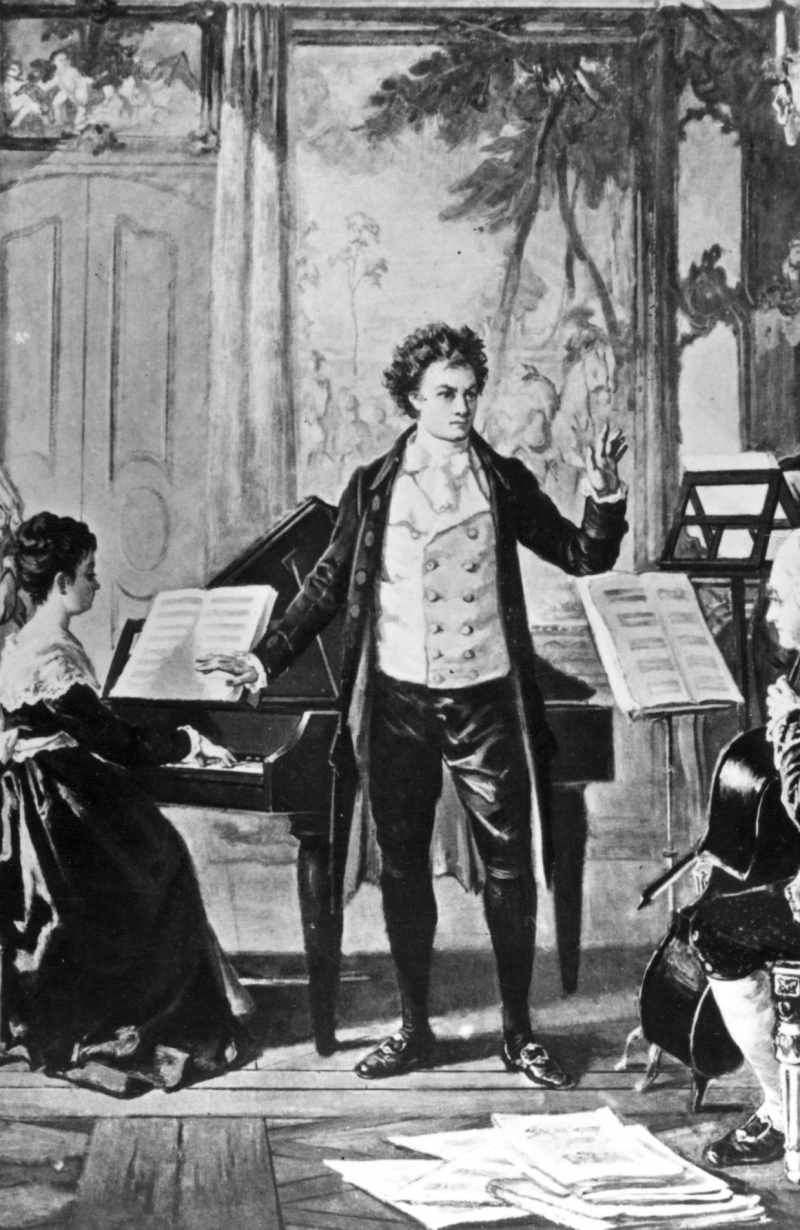
Source: rtbf.be -
This is one of the interesting facts about Ludwig van Beethoven that may surprise many people. The most significant musician since Mozart was thought to be the young Beethoven. He had studied with Haydn by the time he was in his mid-20s and was acclaimed as a superb, virtuoso pianist. He had written a few piano concertos, six string quartets, and his first symphony by the time he was 30. The potential of a lengthy, prosperous career was promising for the person, and everything was looking quite good for him. However, Beethoven first noticed buzzing and ringing in his ears at the age of 26. It has been hypothesized that childhood illnesses like smallpox or typhus were Beethoven's most likely cause of hearing loss. Beethoven made an effort to keep his closest friends and family from learning about the issue. If anyone found out, he felt his career would be destroyed. "For two years I have avoided almost all social gatherings because it is impossible for me to say to people 'I am deaf," he wrote. "If I belonged to any other profession it would be easier, but in my profession, it is a frightful state." One acquaintance is rumored to have cited Beethoven's final words, "I shall hear in heaven," on his deathbed.
Beethoven and fellow composer Ferdinand Ries were out for a stroll across the countryside when they came across a shepherd playing a pipe. Beethoven couldn't hear the lovely music, but he could tell by Ries's expression that it was playing. Beethoven allegedly never recovered from this experience since it was the first time he had faced his deafness head-on. According to reports, Beethoven could still hear some speech and music until 1812. But by the time he was 44, he was virtually deaf and unable to hear many of the noises of the beautiful landscape he loved. He must have felt terrible about it.
Beethoven was familiar with the sounds of instruments and vocals as well as how they interacted because he had heard and played music for the first thirty years of his life. He could always hear his compositions in his head because his deafness was a gradual decline rather than a sudden loss of hearing. As Beethoven's hearing deteriorated, his housekeepers said that he would sit at the piano, put a pencil in his mouth, and touch the pencil's other end to the soundboard to feel the vibration of the note. Higher notes were frequently used in Beethoven's early pieces since he could hear the whole spectrum of frequencies at that time. He started using the lower notes when his hearing grew worse so he could hear better. During this time, Mozart composed the Moonlight Sonata, his sole opera Fidelio, six symphonies, and other pieces. Near the end of his life, the high notes started to appear again in his compositions, which suggests he was hearing the pieces come to life in his head.
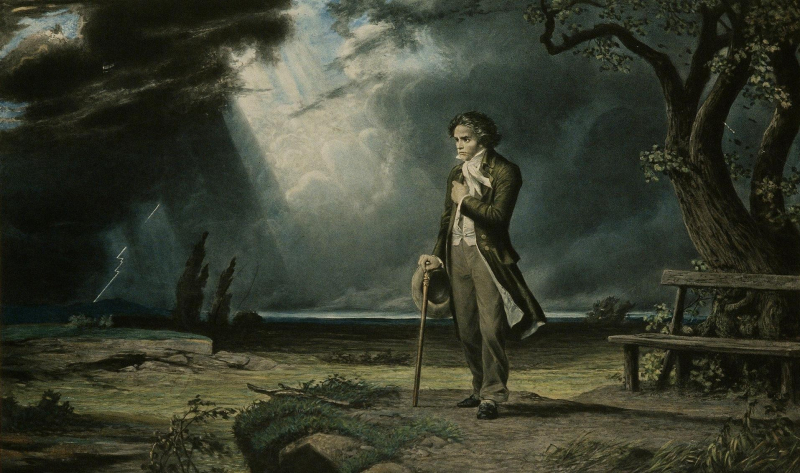
Source: classicfm 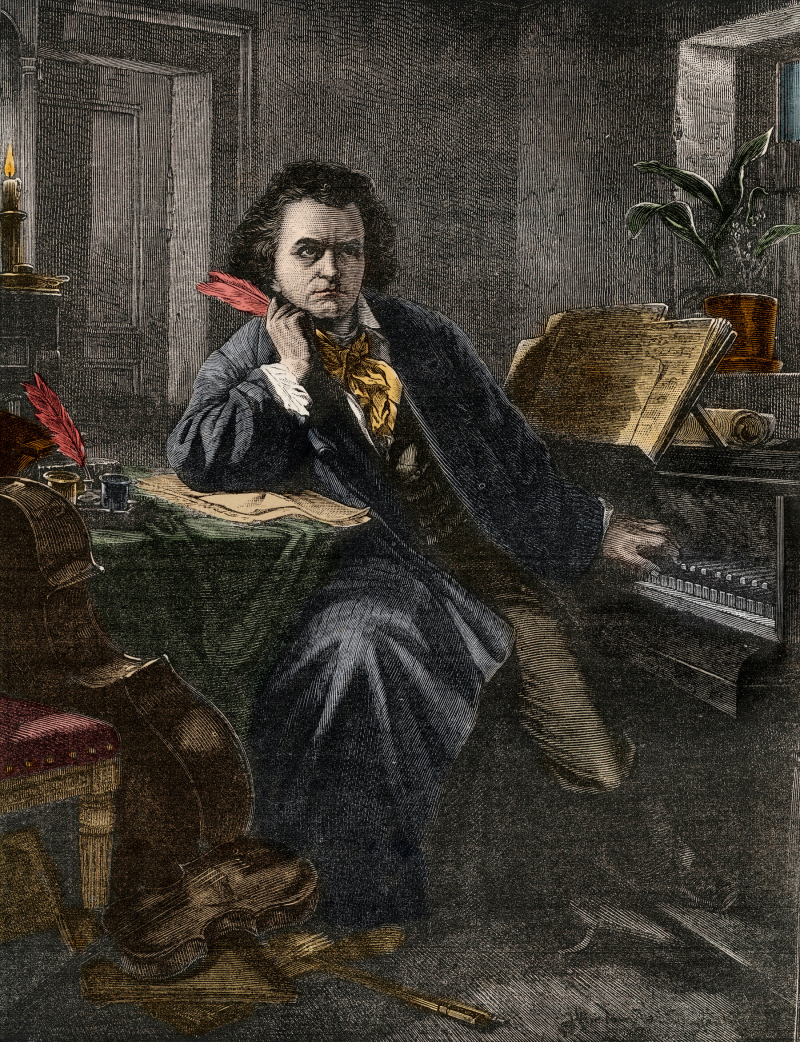
Source: nytimes.com -
Ludwig von Beethoven was deaf, and his irregular heartbeat from a cardiac arrhythmia may have had an impact on his musical works, according to academics from the Universities of Michigan and Washington. Beethoven's deafness is thought to have made him extremely sensitive to his own heartbeat's rhythm. Additionally, they think he may have experienced cardiac arrhythmia, a disease that led to an irregular heartbeat. In order to identify signs that might prove Beethoven had a heart issue, the researchers examined the rhythms of his compositions, according to a paper that was published in the Spring 2014 edition of Perspectives in Biology and Medicine.
According to co-author Joel Howell, MD, Ph.D., a professor of internal medicine at the University of Michigan Medical School, "His music may have been both metaphorically and literally passionate." "Your heart's irregular heartbeat has some recognizable patterns when it is caused by heart disease. In his music, we believe we can hear some similar patterns. According to reports, the research team looked at the rhythmic structures of numerous of Beethoven's works that might have been inspired by his experience with arrhythmia. Beethoven's music has sudden, unanticipated changes in tempo and key that seem to reflect such asymmetrical patterns.
For instance, the scholars cite Beethoven's String Quartet in B-flat Major, Opus 130, and its concluding movement, "Cavatina." The key of the quartet abruptly switches to C-flat major in the middle of the piece, with an uneven rhythm that conjures up feelings of gloom and confusion as well as what has even been called a "shortness of breath." The "arrhythmic quality" of this part is undeniable, said the study's authors. They discovered irregular rhythms in other works as well, such as the "Les Adieux" Sonata's opening (sonata opus 81a, in E-flat major). For a long time, historians have speculated that Beethoven had multiple health issues, including inflammatory bowel illness, Paget's disease (which causes aberrant bone degeneration), liver disease, alcoholism, and renal disease. Beethoven's most frequently mentioned illness was, as is well known, deafness.
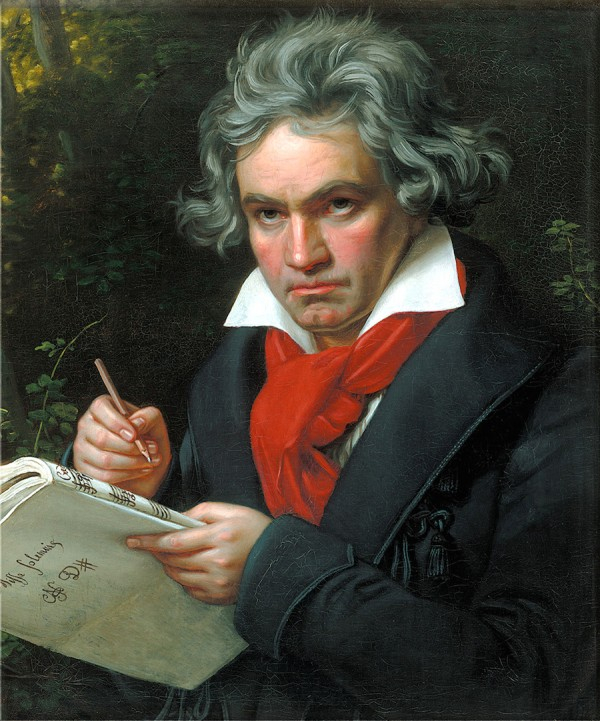
Source: disabilityarts 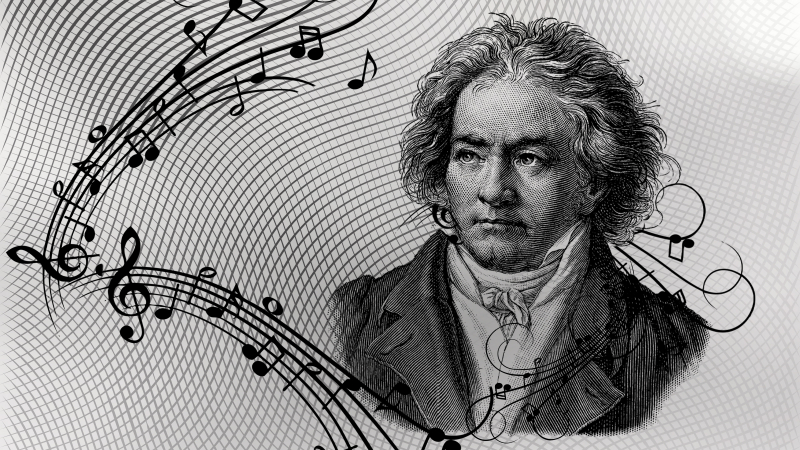
Source: amazon -
When you think of the most famous classical composers, Beethoven and Mozart will almost always make the top of the list. They have both contributed amazing works to the world of music but would you have ever thought they studied with the same teacher? Just goes to show you how greatly talented their teacher Franz Joseph Hadyn was. It’s no wonder why he has been referred to as the father of the symphony. A talented violinist, Mozart studied rudimentary keyboard notes on his father’s harp. Mozart’s first piece of music was composed in 1711; by age six, he had performed before two of his country’s royal courts. As long as Mozart was alive, Beethoven’s music displayed his influence. Rather than copying Mozart’s famous ’40th Symphony’, Beethoven incorporated a few quotations, including that from Mozart’s s’ use when he composed his Fifth Symphony, the third movement of which opens with a theme similar to one from Mozart.
When he was young, Beethoven had traveled to Vienna in an attempt to learn from Mozart to no avail. In his 20s, however, he returned and began his studies with Haydn. A year and a half after Beethoven's return to Vienna in 1792, Mozart passed away. Beethoven had intended to study with Joseph Haydn by this point. Haydn told Beethoven that if he could make arrangements, he may study with him at his home after hearing about his excitement about arriving in Vienna. In November 1792, when Beethoven arrived in Vienna, Haydn welcomed him into his courses but quickly grew impatient with him. Beethoven and Haydn frequently grew frustrated with one another when they were studying together, and Beethoven criticized Haydn's more laid-back teaching style. Beethoven's closest friend in Bonn at the time he began his studies in 1780 was this young instructor. While studying with Neefe, Beethoven created his first keyboard variations. When Beethoven's first print version was released in March 1783, their variants did as well.

Source: halidonmusic 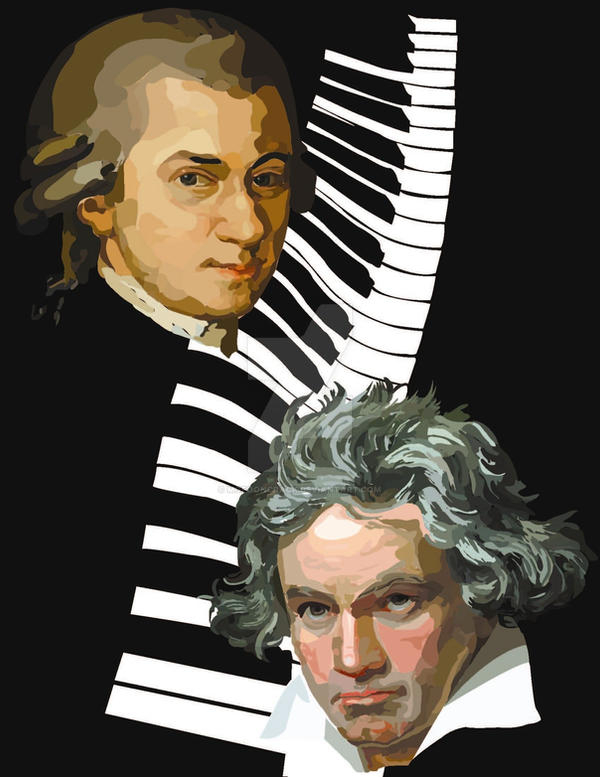
Source: deviantart -
Beethoven had financial hardship for a large portion of his career and life. He occasionally made a ton of money, which he often put into bank shares. However, the prolonged Napoleonic War's catastrophic depreciation of the Austrian currency severely diminished his fortune by more than 50% and sharply decreased the amount of the annuity granted to him by Archduke Rudolph and the Princes Lobkowitz and Kinsky. Beethoven was continually concerned about his financial status, even after he was freed from every justification for financial care.
Beethoven had a reputation as a piano virtuoso during his early years in Vienna. It is not easy to make a livelihood as a freelance musician. And to top it all off, he had renowned improvisational skills. The majority of his early years in Vienna were spent working as a performer in salons. In his 34 years in Vienna, Beethoven was only compensated for participating in fifteen public concerts before he was permitted to charge admission for performances of his work. However, pianists and musicians from all over Europe were originally drawn to Vienna, and it took some time for him to get through the scheming and jealousy of his contemporaries and competitors. Beethoven eventually grew popular and was able to charge high prices for his concerts. Sadly, when his hearing failed, this specific source of income would go forever.
Beethoven would give individual lessons as a way to augment his income, a job he detested to the core. He was obviously not temperamentally suited for such educational endeavors, as evidenced by the colorful narrative that claims he "hit Karl Hirsch in the shoulder" after becoming furious with him. It appears that he also slapped the poor kid and shouted at him nonstop in a fit of wrath. He did, however, take lovely young countesses as students, but frequently refused to accept payment for his services because of an antiquated custom and his wish to be seen as a member of the upper classes.
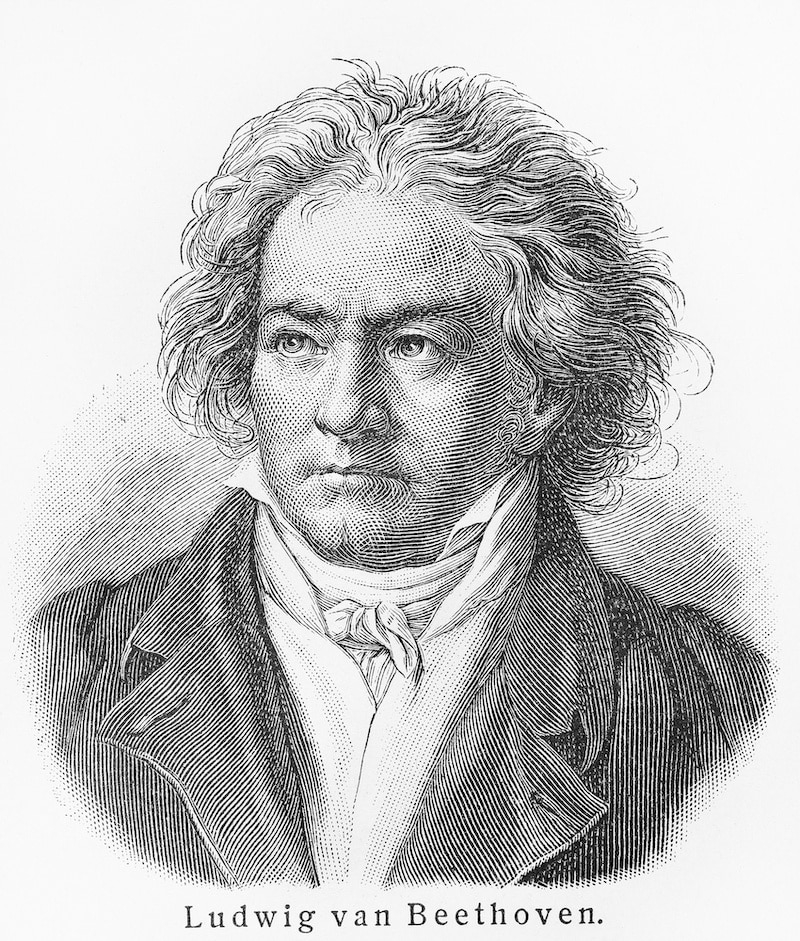
Source: hellomusictheory 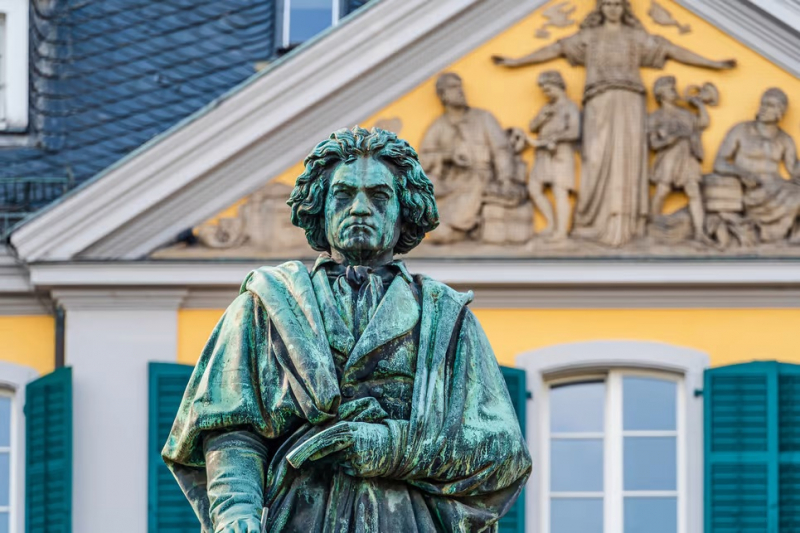
Source: politico.eu -
The dying man abruptly lifted his head from Hüttenbrenner's arm and magnificently extended his own right arm, delivering instructions to an army like a general, at this awful peal of thunder. According to Thayer's account of Beethoven's demise, this only lasted for a split second before the arm sank back, he slumped back, and Beethoven passed away.
Throughout his latter years, including his so-called "Late phase" when some of his most admired works were composed, Beethoven's health deteriorated. The replacement final movement of the String Quartet No. 13 (Op. 130), which was written to take the place of the challenging Große Fuge and later released separately as Opus 133, was the last piece he was able to complete. Soon after, in late 1826, he experienced spells of vomiting and diarrhea that came dangerously close to taking his life.
His friends gathered to support him and offer their last respects when it became clear that Beethoven would not survive. Beethoven had four minor procedures to treat his ascites (abdominal swelling), the first of which led to an infection while the others did not. After receiving his final rites on March 24, he lost consciousness on March 26 and passed away that night in the early hours. Although there may have been other people in the home, such as Beethoven's brother Johann, Karl Holz, and a few acquaintances, Hüttenbrenner claims in his narrative from 1860 that only he and Beethoven's sister-in-law were in the room when the composer passed away. Alexander Wheelock Thayer, a biographer of Beethoven, wrote Hüttenbrenner's story of Beethoven's passing down in his notebook. Some versions of Hüttenbrenner's eyewitness account suggest that Beethoven "shook his fist towards the skies" just before passing away. Since it is hard to confirm any assumptions about the dying man's mental condition, current Beethoven scholars frequently brush over or disregard them as unimportant.
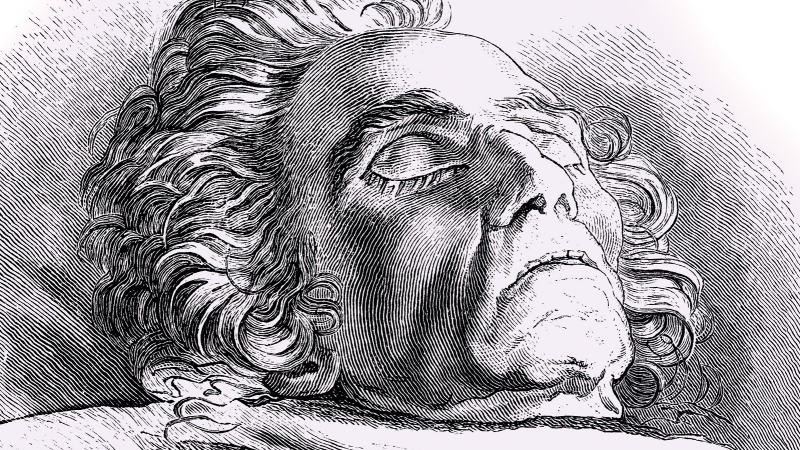
Source: interlude 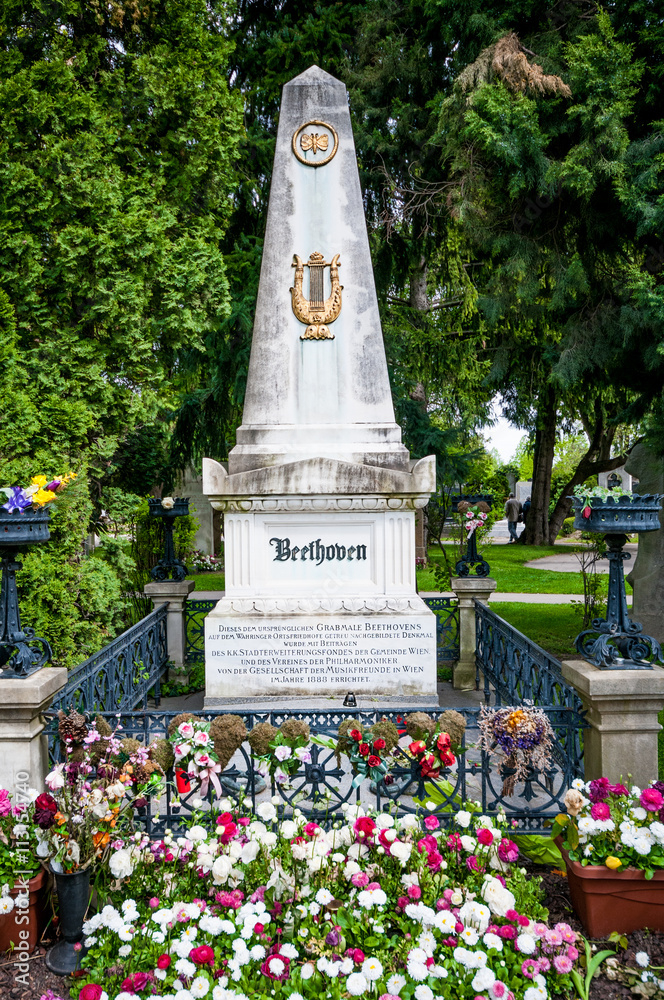
Source: stock.adobe.com -
One of the interesting facts about Ludwig van Beethoven that you may not know. Beethoven was at best a mediocre student who struggled with math and spelling throughout his life. Some biographers have theorized that Beethoven may have suffered moderate dyslexia. "Music comes to me more effortlessly than words," he said. Beethoven's first composition, a set of piano variations on a theme by an obscure classical composer named Dressler, was published when he was 12 years old. At the age of 10, Beethoven withdrew from school to devote his full attention to studying music with Christian Gottlob Neefe, the newly appointed Court Organist. Beethoven's father was no longer able to provide for his family by 1784 due to his severe alcoholism and deteriorating voice, and Beethoven publicly requested an appointment as Assistant Court Organist. Beethoven's request was granted despite his youth, and he was given a meager 150 florins per year as remuneration.
As his father was unable to support the family, Ludwig had to leave school at the age of 11 and eventually took on the role of family breadwinner at the age of 14. Beethoven's father started teaching him music with an incredible severity and harshness that would have an impact on him for the rest of his life somewhere between the births of his two younger siblings. According to neighbors, the little child sobbed as he played the clavier while standing on a footstool to reach the keys, and his father punished him for every pause or error. Beethoven was frequently spanked, imprisoned in the cellar, and denied sleep to allow for longer practice sessions. Along with his father, he took further tuition from local organists while studying the violin and clavier. Beethoven was an extraordinarily gifted musician from a young age, whether in spite of or because of his father's strict discipline.
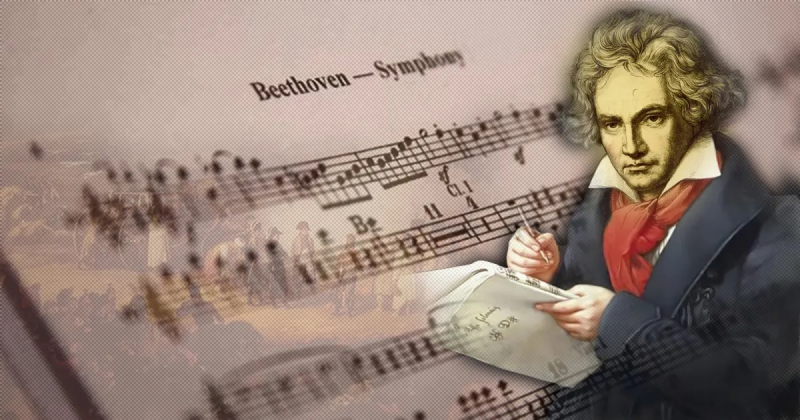
Source: jornal.usp.br 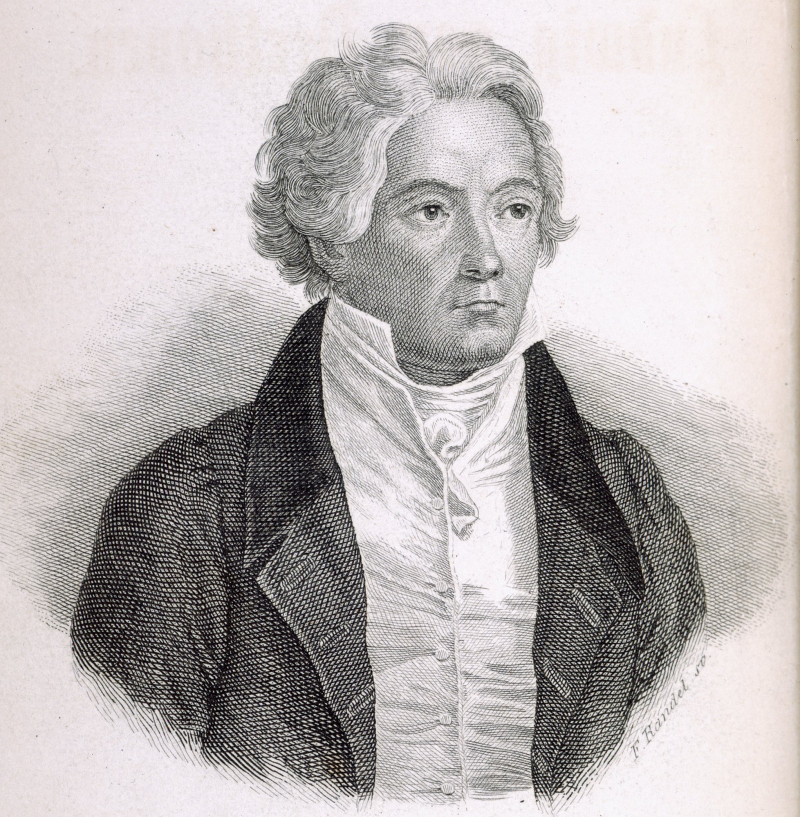
Source: bl.uk -
Beethoven never got married, and his love life was turbulent. He formed several love ties, some of which could have gone unfulfilled. Despite his musical prowess, his comparatively low social status meant that his repeated attempts to court well-born ladies were fruitless. Anton Schindler, Beethoven's helper, found a concealed drawer after the composer's passing in March 1827. It held several photographs, cash, and two documents. One of these was a letter Beethoven sent to his brothers in 1802 that became known as the Heiligenstadt Testament. In it, he bemoaned his deteriorating hearing and expressed his sorrow and melancholy about the effect his condition would have on his artistic talents.
The other was a letter that spanned 10 compact pages and was written in pencil in Beethoven's sloppy handwriting. It portrays his mental turmoil and longing for an anonymous woman in three blasts. He proposes an assignation in a nearby place known only as "K," which historians say was most likely Karlsbad, now the Czech town of Karlovy Vary, out of a desire for them to be together. As Beethoven writes, his optimism for the connection seems to wane. The last section conveys his resignation that their great love was never to be as he signs off with the lines, “Ever thine. Ever mine. Ever ours.” The disastrous relationship began at the same time as one of Beethoven's worst phases, during which he spent several years without producing a significant piece of music.
One of the biggest riddles in music history has never been fully explained. Who was the woman who had Ludwig van Beethoven infatuated to the point where he felt forced to write a notoriously passionate and fervent love letter that has endured the test of time? Beethoven's "Immortal Beloved," more correctly titled "Eternally Beloved," has baffled scholars for two centuries and even served as the inspiration for a movie. However, the exact facts might never be revealed.
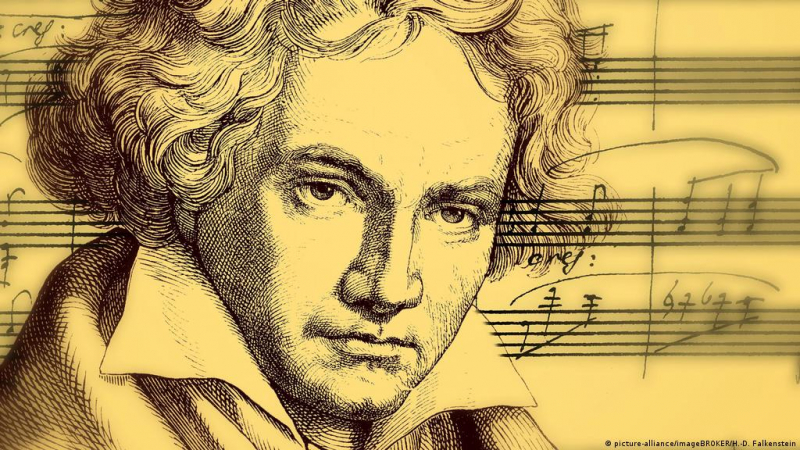
Source: dw.com 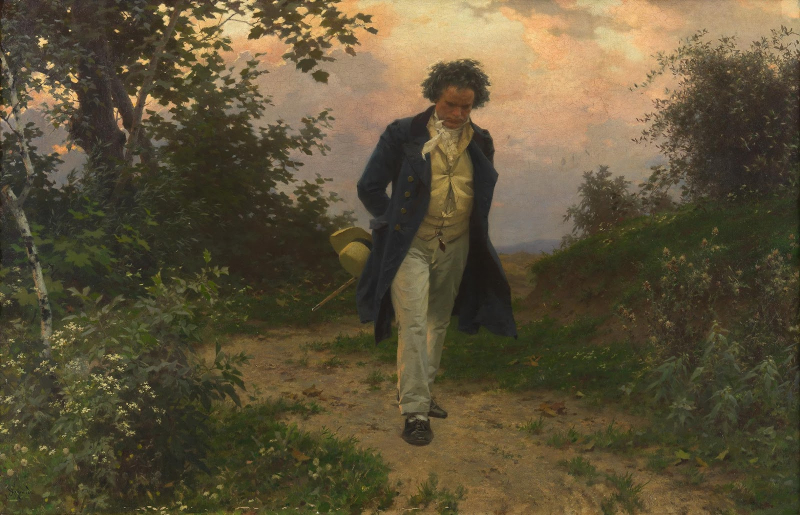
Source: tuttartpitturasculturapoesiamusica










